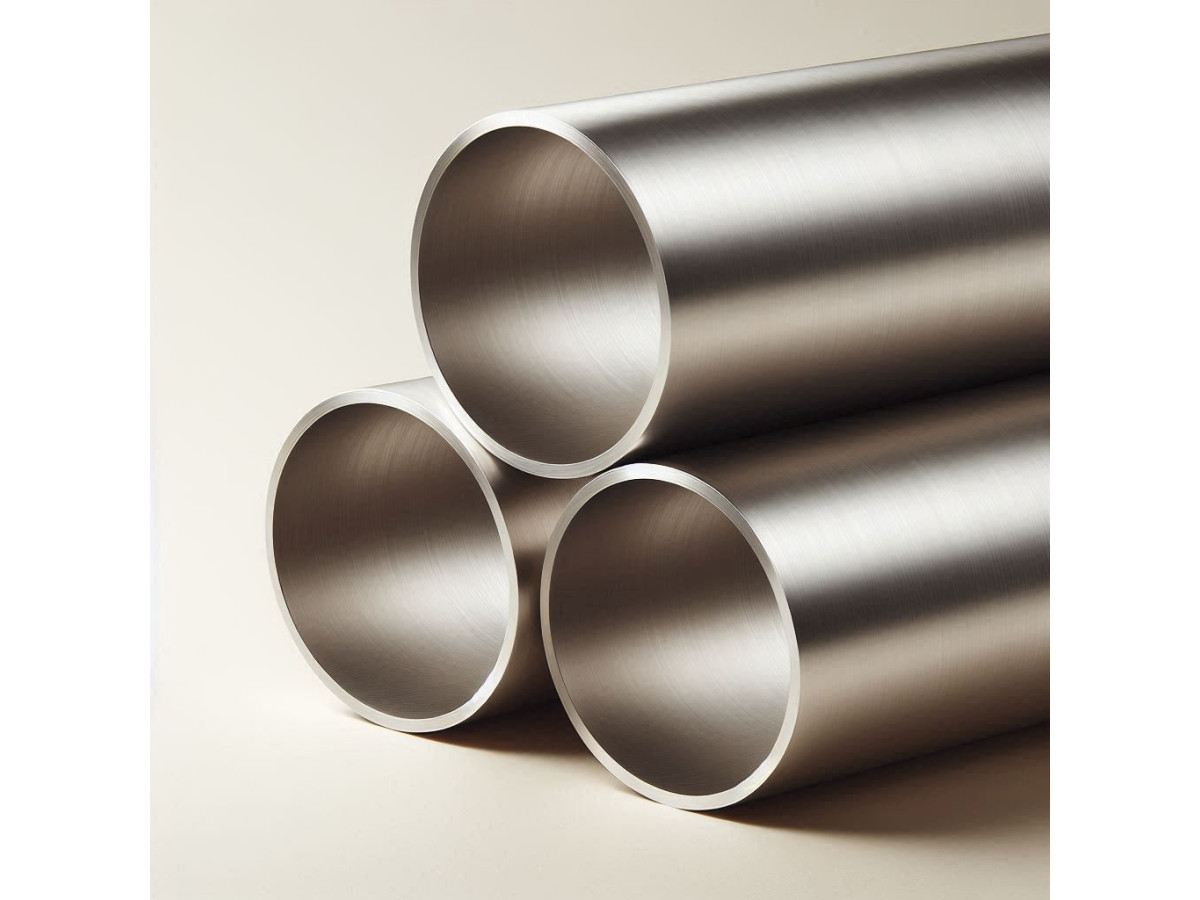Who would have thought that the light and silvery metal that we take for granted today was once considered more valuable than gold? Aluminum, this once rare element, has become firmly established in our lives today. And one of the most common forms of its application is aluminum pipes.
The pharaohs also used potassium alum for tanning leather and dyeing fabrics. However, it was possible to obtain pure aluminum only in the 19th century. The invention of electrolysis made it possible to mass produce this light metal, and since then its popularity has grown steadily.
Why is aluminum so good for pipes?
This metal is incredibly light. This makes it suitable for structures where weight matters: airplanes, spaceships, bicycles. It forms an oxide film on the surface, which effectively protects the metal from rust. That is why aluminum pipes can be used even in aggressive environments. Their main advantages also include:
- Reduced weight of structures. Such rolled steel is several times lighter than steel, which reduces the load on supporting structures and simplifies installation.
- Savings on transportation. The lighter weight of the products reduces the cost of their delivery.
- Bending and forming. Pipes bend easily and take complex shapes, which allows you to create custom designs.
- Welding. The products are easily welded, which ensures a reliable connection of the elements.
- Thermal conductivity. The material removes heat well, making it indispensable in heating and air conditioning systems.
- Durability. Thanks to their corrosion resistance, aluminum pipes last for many years.
- Environmental friendliness. Aluminum is easily recyclable, so it is rightfully considered an environmentally friendly material.
The pipes have an attractive appearance and are easily amenable to various types of finishing. Low cost, easy installation and durability make this rolled metal an economically viable solution.
Recommendations for choosing products
Choosing an aluminum pipe is a responsible decision that depends on many factors: from the specific application to operating conditions. Let's look at the main selection criteria:
- Diameter is determined by the throughput and operating pressure of the system.
- Wall thickness - the strength of the pipe and its ability to withstand internal pressure depend on it.
- Length - standard options or to order.
- Aluminum alloy - different alloys have different properties: strength, corrosion resistance, ductility.
- Connections - welding, thread, fittings, selected depending on the requirements for tightness and installation method.
- Temperature - for high values, special heat-resistant alloys are needed.
- Pressure - the operating pressure must be lower than permissible for the selected type of pipe.
- Aggressive environment - in such conditions, pipes made of special corrosion-resistant alloys are required.
- Vibration - for dynamic loads, rolled metal with increased strength is needed.
Well-known manufacturers guarantee product quality. The presence of certificates confirms product compliance with established standards. The cost depends on the diameter, wall thickness, alloy and manufacturer.
Varieties and features
The most common type of cross-sectional shape is round; it is characterized by versatility and increased strength. According to the production method, products are of two types: without seams and with seams. Seamless are produced by extrusion, have maximum strength and a smooth inner surface. Welded ones consist of separate sheets connected by welding. More economical, but may have operating pressure limitations.
Pure aluminum can be used as an alloy; it is soft, easy to process, but less durable. Alloy alloys contain additives of other metals, which increases strength properties, corrosion resistance and other characteristics. For example, alloys with magnesium, silicon, copper.
Where are they used?
The high thermal conductivity of this raw material makes it an ideal material for radiators and heat exchangers. Pipes made of aluminum alloys are resistant to rust, which makes it possible to use them for water supply systems, including hot water supply. Lightness and strength make rolled steel an excellent material for air ducts.
Aluminum panels and profiles are used to create lightweight and durable facades and roofs. Pipes are used to create various structures, for example, railings, fences, furniture. Due to its resistance to rust, rolled metal is widely used in the production of chemicals and for transporting aggressive media. It is suitable for the production of electrical wires and busbars.

